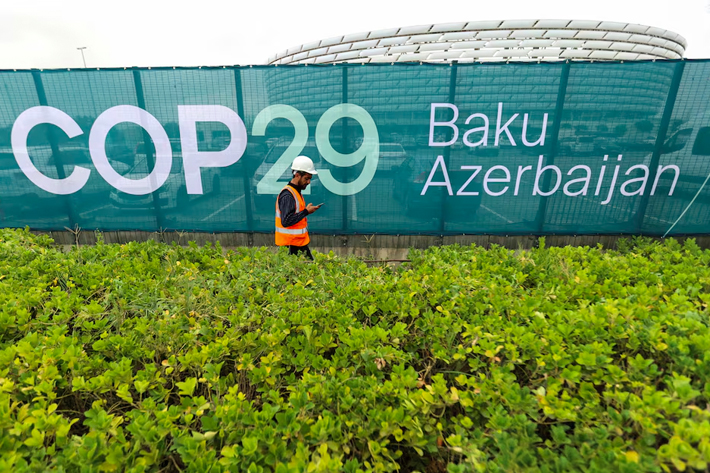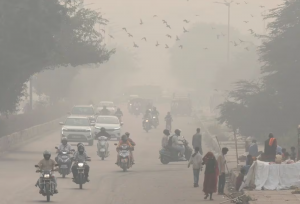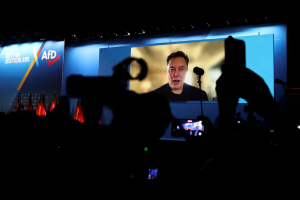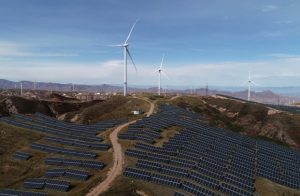Countries at the United Nations’ COP29 began the critical climate summit with a vital step that might finally pave the way for a global carbon market to help fund programs aimed at reducing carbon emissions.
On Monday, delegates gathered in Baku, Azerbaijan gave a green-light to carbon credit quality standards — guardrails for how international carbon crediting projects will work.
Those standards are critical to operationalising a UN-backed global carbon market, which has been years in the making.
Also on AF: ‘We Are on a Road to Ruin’: COP29 Kicks Off Amid Trump Worry
And concluding a deal on those standards would mean the market could start up as soon as next year, one negotiator said.
“This will be a game-changing tool to direct resources to the developing world and help us save up to 250 billion dollars a year when implementing our climate plans,” Yalchin Rafiyev, COP29 Lead Negotiator, said in a statement announcing the development.
Why does this matter?
In theory, carbon credits allow countries or companies to offset their emissions by paying for projects anywhere on the planet that reduce CO2 emissions or remove it from the atmosphere.
Those projects could include cultivation of CO2-absorbing mangroves, or distribution of clean stoves to replace polluting methods of cooking in poor rural communities.
But the carbon market has been hit by series of scandals, such as credits being issued for projects that don’t meet required standards, don’t deliver the reductions they promised, or straight up don’t exist.
The result has been a deep distrust of the carbon credits market. Greenpeace has previously called carbon offsetting “a scammer’s dream scheme.”
Even so, policymakers and scientists argue that the world needs every tool in its arsenal to stand a chance at limiting global warming to 1.5 degrees Celsius above pre-industrial levels.
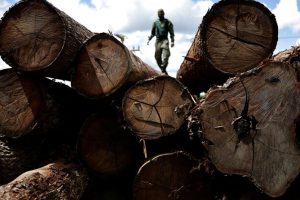
And carbon credits can be especially useful for governments and companies that may struggle to reduce their planet-warming greenhouse gas emissions to meet their climate targets.
COP29 negotiators argue that linking the carbon credits with the UN can bring some much needed credibility to the market. Discussions around the carbon market are part of Article 6 of the Paris Agreement that sets out processes for countries to work together to reduce their carbon emissions.
Experts also expect UN-approved credits to carry a higher price tag.
The International Emissions Trading Association, a business group that backs global carbon markets, has said total trading in the UN-backed market could generate $250 billion a year by 2030 and cut 5 billion metric tons of carbon output annually.
And there’s a bonus…
A deal on a UN-backed carbon market could also be a route for companies in the United States to keep participating in global efforts to address climate change, despite a potential change in policies at home.
The US is the world’s biggest historic emitter of greenhouse gases and, also, the world’s biggest economy — meaning it could play a major role in carbon markets.
But unlike the European Union and China, America is yet to launch its own carbon credits market. And the re-election of Donald Trump as president could mean a US market may remain out of reach.
Trump, who is a climate change sceptic, pulled the US out of the Paris Agreement in his first term and has threatened to do so again. If he does, a UN-backed global market could give US firms a way to still buy credits to meet their voluntary climate targets.
Monday’s deal will bring “us closer to operationalising the carbon market before any single party may decide to move away from the Paris Agreement,” Juan Carlos Arredondo Brun, a former climate negotiator for Mexico who now works for carbon market data and souring company Abatable, said.
So, did COP29 get it right?
While Monday’s breakthrough is a win for COP29, there are now concerns over the standards that were set and the process with which a deal was reached.
“A lot of funders are worried that the markets aren’t stable enough, credible enough to be able to invest more in,” Rebecca Iwerks, a co-director at non-profit group Namati told Reuters.
“It could actually hinder the development of the market if you don’t have a strong standard,” she said of the deal.

A major concern was that the standards fall short on protecting the rights of communities affected by projects. That’s significant, considering there is growing concern of rights violations, especially from nature-based offsetting projects.
Just this year, for instance, Human Rights Watch found that Cambodia’s nature projects — that created a significant chunk of the world’s carbon credits last year — involved widespread and serious violations of Indigenous communities’ rights.
Similarly, in Brazil, after Amazon and several other firms agreed to buy carbon credits worth $180 million to support conservation of the Amazon rainforest, Indigenous organisations said they were not consulted over the deal.
“We are being sold like goods,” one tribal leader told Reuters.
Meanwhile, some negotiators were also critical of the way Monday’s deal was done. The standards were agreed by a small group of technical experts, with some countries saying they had not been given a fair say in the final rules.
Kevin Conrad, executive director for the Coalition for Rainforest Nations and former climate envoy for Papua New Guinea said the supervisory board overstepped its mandate.
“We endorse what they have done, not the way they have done it,” he said.
- Reuters, with additional editing and inputs from Vishakha Saxena
Also read:
Uncertainty on Methane Emission Fee as Biden Term Nears End
Scientists Say 2024 ‘Virtually Certain’ to be Hottest on Record
Trump Will Have Big Impacts on Trade, Climate Change, EVs
Floods or Drought: Climate Change Worsens Global Water Woes
Asian Economies at Risk From Inaction on Climate Change: ADB
Climate Change Has Cost China $32 Billion in Just One Quarter
Emissions of World’s Super Rich ‘Drive Economic Losses, Deaths’
Funding Gap Hurts Climate Talks While World Faces 3.1C Warming
Energy Emissions Set to Peak But ‘Not in Time’ For Climate Goals
Scientists Fear Nature’s Carbon Sinks Are Failing – Guardian
Could Melting Glaciers Trigger Volcanic Eruptions? – Reuters




